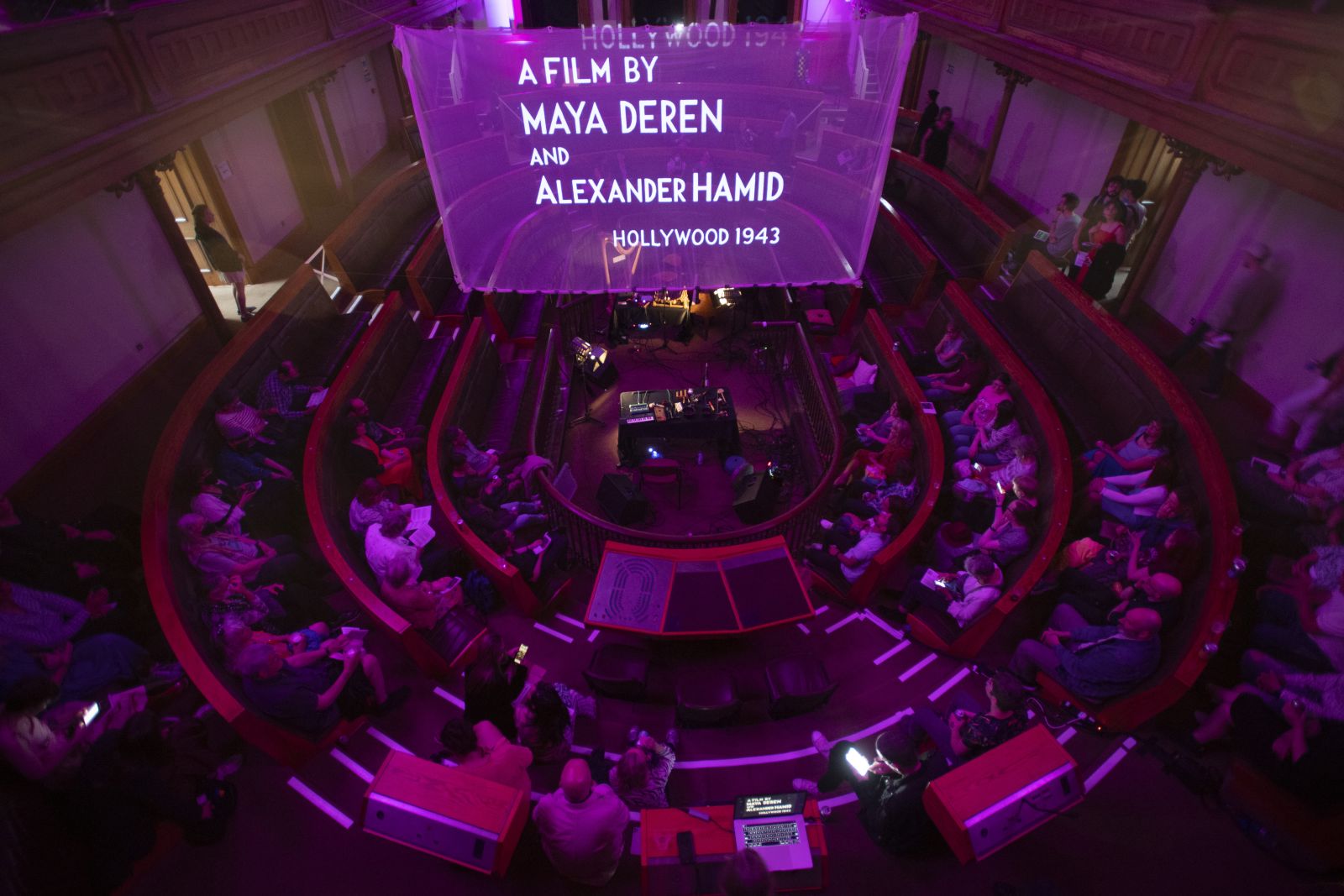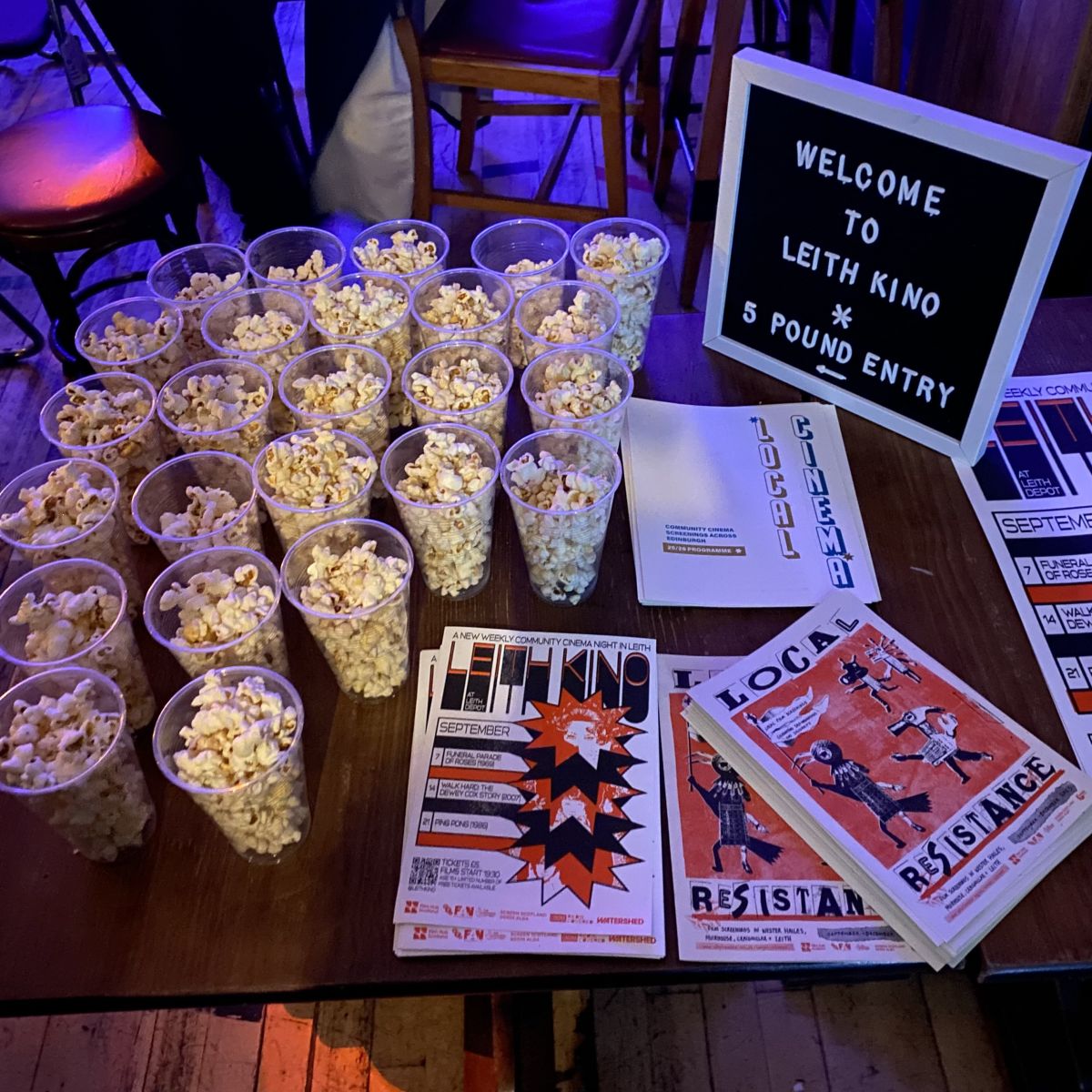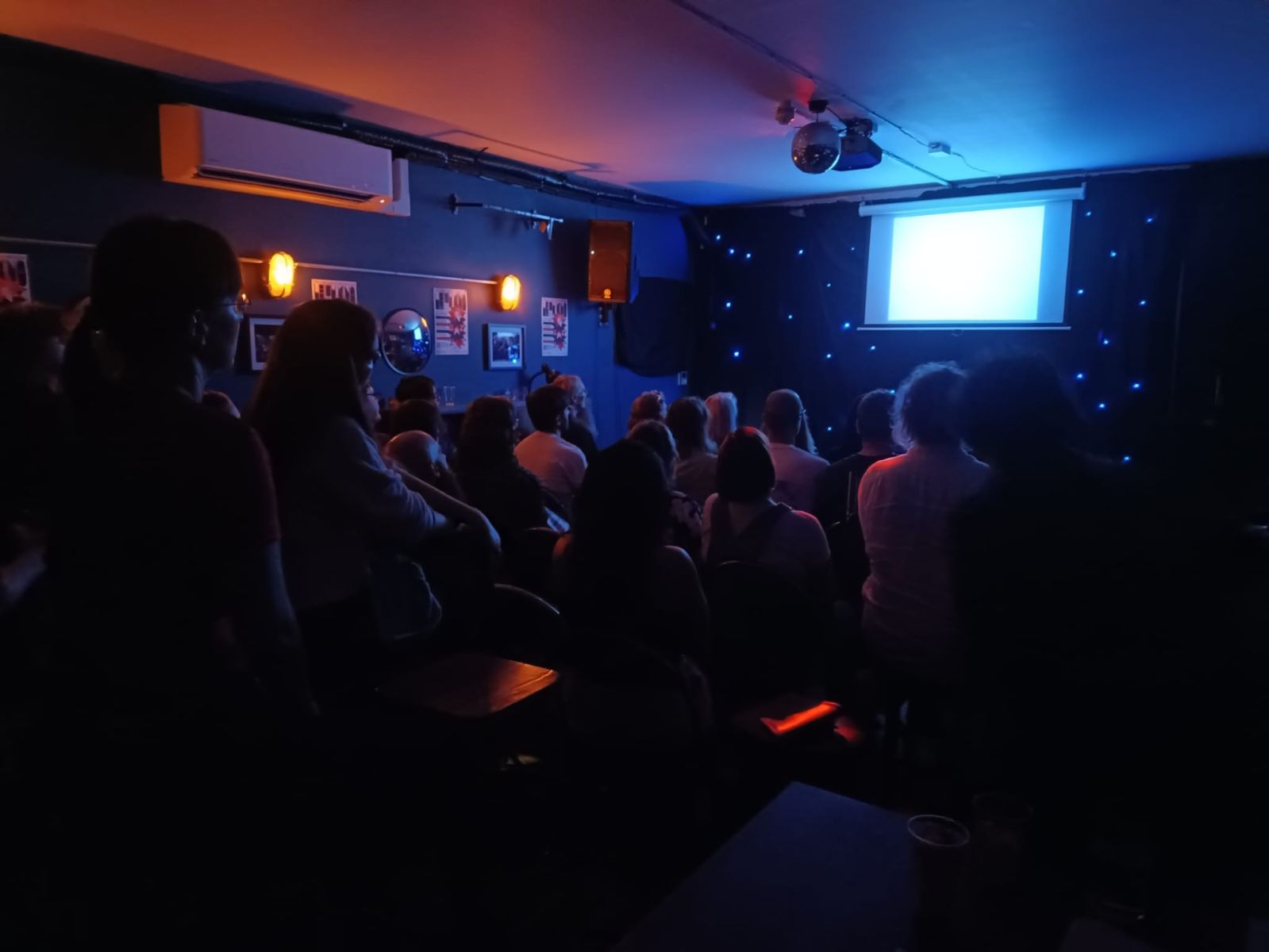Community Cinema: How local heroes are reshaping film screening culture
Film doesn’t just exist in multiplexes, established cinemas and arthouse venues. Kevin Fullerton takes a look at community cinema in Scotland and finds a thriving and expanding scene powered by passionate enthusiasts with an anything-goes attitude

When the Filmhouse shut its doors two years ago, panic ran through the UK cinemagoing community. Was this a sign that Scotland had fallen out of love with film? Critic, writer and curator Anna Bogutskaya underscored the venue’s value best when she advocated for the cultural necessity of cinemas in a spirited piece for The Guardian. ‘There should be room for curation and experimentation beyond profit,’ she wrote. ‘Every single screening, red carpet or not, is an experience.’
There was a happy ending for the Filmhouse, which re-opened this year after a lengthy period of campaigning, but within that time smaller projects have emerged that recapture the magic of screenings which operate outside of the arthouse or multiplexes. Community cinemas have enjoyed a broad resurgence across the central belt, with eclectic programming styles that favour the eccentricities and enthusiasms of their programmers. In the centenary year of community cinemas, and at a time when sites like Letterboxd have re-ignited a younger generation’s interest in cineliteracy, the notion of film as a gathering point for like-minded people is alive and well.

The most recent community event to unload its projector is Leith Kino, which takes place every Sunday at Edinburgh’s Leith Depot and harbours an endearingly no-brow attitude to its programming. In its opening month in September, audiences drank in the subversive Japanese queer classic Funeral Parade Of Roses, John C Reilly’s zany biopic pastiche Walk Hard: The Dewey Cox Story and Ping Pong, the first ever film in the UK to feature a majority cast of British Asians.
‘That’s something we’re beginning to specialise in already; films that people may not have heard of or may not have seen before,’ says Morvern Cunningham, one of the co-founders of Leith Kino. ‘But hopefully they stimulate an audience that trusts us and knows that whatever they’re going to see will be entertaining, challenging or interesting.’
Cunningham, who has co-ordinated various community cinema projects in Edinburgh as part of the Local Cinema Network, first conceived of Leith Kino alongside Fraser Elliott in an effort to establish a regular micro-cinema experience in Edinburgh, echoing the spirit of boutique picture houses that are well-established in capital cities across Europe. Its commitment to making niche programming accessible extends to its pricing, with tickets costing £5. ‘We’ve got basic back-of a-fag-packet budgeting,’ Cunningham explains, ‘which is 50 people at a fiver each, which can pay for one film license and leaves some money for us. It’s a commitment to accessibility and a commitment to paying ourselves something.’ With 12 members of the collective selecting films, diversity is key to Kino’s flavour, ensuring a programme that is broad in its appeal and unique in its sensibilities.

It’s an approach shared by Sam Elder, the organiser of Glasgow’s Hurdy Gurdy Film Club, which favours countercultural cinema of the 1960s and 70s. Establishing the project with money he made as a submission viewer for the Edinburgh International Film Festival, Elder’s intention behind Hurdy Gurdy has been to broaden the net of films available to watch across Glasgow. ‘The GFT can only show so much and there are just so many films out there that are ripe for rediscovery,’ Elder insists. ‘The idea is to show stuff that is screening for the first time in Glasgow or films that have skipped whole generations since they were last on the big screen. It’s a case of introducing audiences to things they may not have actively sought out before and to give them new and thought-provoking experiences.’
Cinetopia, an Edinburgh-based organisation which has transformed into a hub for film networking, exhibitions and media, share a similar approach, with plans to merge cinema with music and conversation in its new Cinetopia Salon series. ‘We want to encourage artists from across different art platforms to engage with the moving image,’ Amanda Rogers, co-founder of Cinetopia states. ‘We’re trying to create a space where discussion can happen. There will be drink and maybe some free nibbles. The idea is to literally create a space where it’s more than just a film event.’ As with their first screening in October, this can mean a jazz performance to Louis Malle’s Elevator To The Gallows, a more traditional orchestration of a silent film classic, or something entirely different. Beyond the cost of screening licenses, the sky is the limit in terms of creative ideas that cater to those who view cinema as an ideal intersection of every artform.
.JPG)
Creative thinking abounds in these spaces, led by the instincts of both programmers and audiences. ‘There’s something great about a community space,’ Leith Kino’s Elliott says. ‘There’s a sense of community ownership over it. At professional cinemas, you always move onto the next film, the next film, next film, then “everyone out”. Whereas here, we can stay in the space for an hour afterwards or turn it into a standing gig. It’s more collaborative and open to where people want it to go.’
‘We really care about the films that are getting put on screen,’ echoes Cunningham. ‘I’m really proud of every title. People are exposed to films they haven’t seen before or can re-appraise films that they never thought were any good.’
As Rogers points out, community cinema is a fluid idea. ‘In the technical sense, there’s a type of license that you take out which makes a space a community cinema. But ultimately you can create a community cinema experience in a multiplex if it’s fostered with the concept of bringing a group of people together for their love and passion around a film or theme.’
Myriad screenings take place unnoticed across the central belt in small, interesting venues, maintaining the legacy of film as an egalitarian medium (it’s with good reason that the nascent years of the moving image invited comparisons to the Tower Of Babel). Leith Kino, Cinetopia and Hurdy Gurdy Film Club (along with Matchbox Cine, Take One Action, the venues participating in the Local Cinema Network, Borscht Film Club, and more) are a small selection of many individuals ensuring that the spirit of film remains intact. ‘Martin Scorsese says we cannot rely on the movie business to look after cinema, we have to do it ourselves,’ says Elder. ‘Independent programming is part of that.’
For full programme details, see Leith Kino’s Instagram, Cinetopia’s site, and Hurdy Gurdy Film Club’s Instagram.